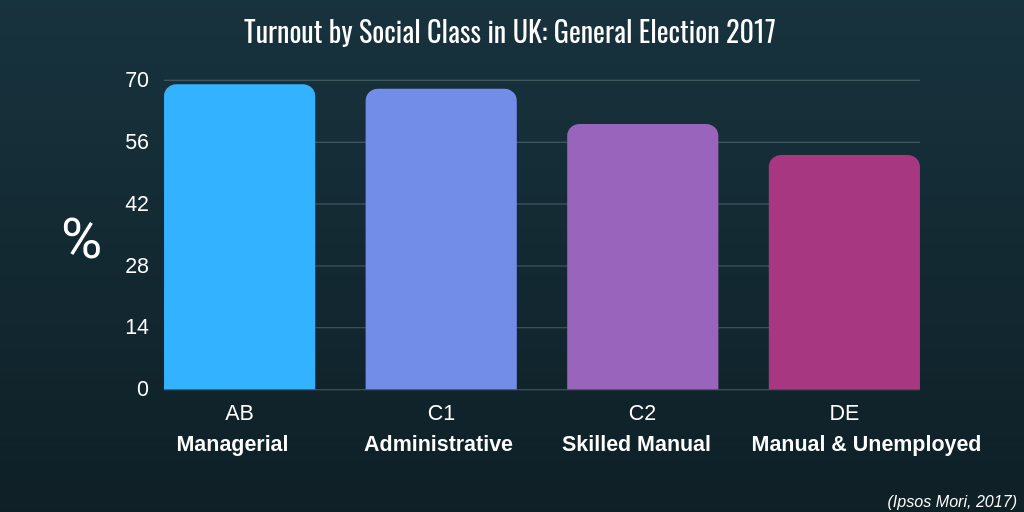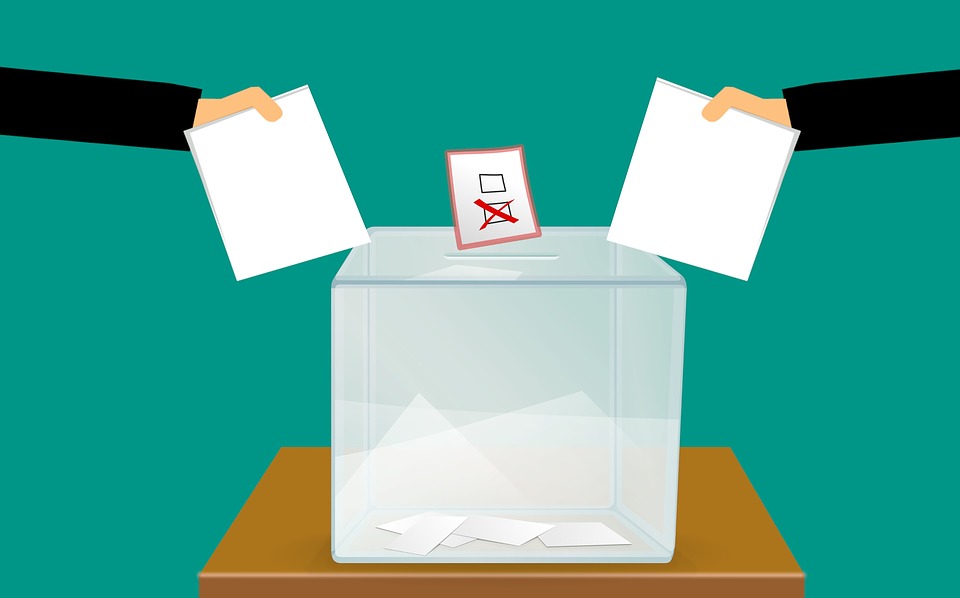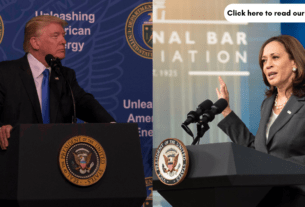Britain has a representative democracy which is no longer representative, an electorate that doesn’t fully participate in politics and a section of the population that lacks the right skills for political engagement. But, the crisis is more serious than this because this is about inequality, discrepancies and alienation. Time and time again it is people who are less well-off financially that are becoming voiceless and non-existent in the eyes of politicians and political parties. Large scale, fundamental and widespread change is required to fix this crisis: from compulsory voting to a better citizenship education and compulsory political activities at schools.
There are no two ways about it: social class still has a direct and negative impact on political engagement. That is, if one is from a lower socio-economic class they are less likely to vote, participate in politics and engage in democracy. This also illustrates that inheritance plays a much bigger role in contemporary society – because you don’t just inherent your parent’s wealth and financial capital, but also their political engagement. It’s very likely that if your parents were not politically active that you won’t be either and if they were active then it is very likely that you will also be incredibly active in both electoral and non-electoral forms of participation.
As Figure 1 illustrates below, there is a whopping 16% difference between the voter turnout of the highest and lowest social classes, with the voter turnout for the managerial class at 69% and that of manual and unemployed people at only a dismal 53%. This is also largely representative of the voter turnouts at the 2015 General Election.

Add age to this equation and the picture becomes even bleaker and two-fold more depressing. Among 18-34 year olds, for example, the voter turnout gap between the highest and lowest social classes was an exponential 26%. Only 35% of people of young people from a manual and unemployed background turned up to cast their vote compared to 61% of young people from a managerial background.
Of course, one may argue that electoral participation is not the be-all-end-all and that the lower classes may simply practice alternative politics. However, it simply isn’t true. People from lower social classes are less likely to engage in political activities regardless of the format. Young people from disadvantaged backgrounds, for instance, are less likely than their middle class counterparts to participate school political activities, such as: debates, the student council and mock elections.
Additionally, one may argue that education has a more detrimental role to play, as opposed to socio-economic inequality. But the underlying theme is that of wealth, according to academics Hoskins and Janmaat. This is highlighted by the fact that ‘the effect of the graduate variable may be partly explained by differences in wages’, as stated by a research report from the Institute for Public Policy Research. In other words, it is one’s economic background that is likely to determine the level and type of educational attainment as well as political engagement.
The fact that economic background still matters in public life is nothing less than a tragedy for a democratic nation-state, especially for a democracy that is the inventor of parliamentary democracy. A health democracy requires active citizens because ‘with so many people in society alienated from politics, democracy itself is weakened’, as per Mr Flinders, a university lecturer. The concept active citizens refers to people who participate in protests, community projects, representative democracy and adhere to democratic values. And, the fact that the lower social classes are constantly missing out on each of these four dimensions must warrant action.
Firstly, voting for the first timers should be compulsory. This may seem like a radical idea to people who cherish individualism and freedom of choice, but it really isn’t. As evident in the video below, Barack Obama, the 44th President of the United States is open to the idea “because it would be transformative if everyone voted… especially low-income groups”. It would be transformative precisely because everyone’s interests would be represented, including those who are from manual and unemployed background. First time voting would also counter voting inequality among 18-34 year olds where the class gap is bigger than in the older generations.
Secondly, a more fundamental approach is needed to equip every citizen with adequate political literacy everyone can become an active citizen. Schools and sixth forms can play a vital role in countering the class-based political inequality. As noted above, it is students from middle class backgrounds who make the most use of voluntary political activities at education institutions. To shatter this unequal and repetitive pattern academics have argued that these political activities should be compulsory.
Both of the above propositions are academically and empirically sound arguments. Research has illustrated that ‘learning through social participation, both inside and outside school… shows a strong positive relationship with citizenship knowledge, skills and dispositions’, as argued by Professor Bryony Hoskins and colleagues.
Are you in favour of these ideas to make democracy more representative again?
* This was originally published here.
Widget not in any sidebars
______________________________________________________________________________
Muhammed Raza Hussain is an award-winning writer: he is the Extra-Mile winner of the News Quest Young Reporter Scheme 2014 and received a certificate for Talent for Writing by Young Writers. Twitter @MuhammedRaza786 | Instagram: @M.Raza.H_




